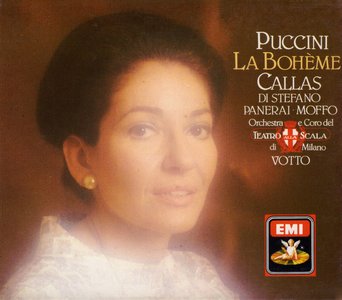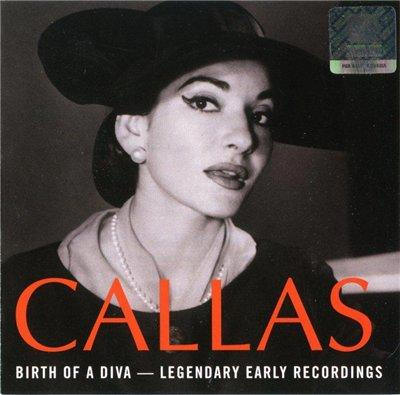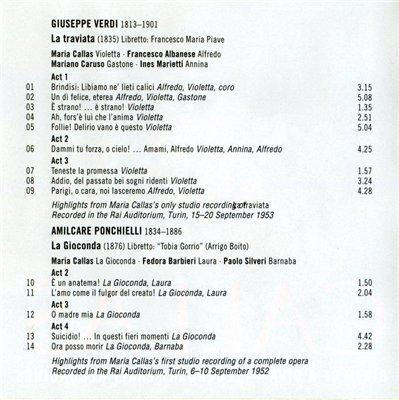 Puccini
- La Bohème [Votto]
Puccini
- La Bohème [Votto]EAC Rip | Classical (opera) | 2 CD | FLAC + CUE + Logs | Scans 300 dpi | 394 mb | RS + SM | TT 01:45:50
Released: 1987 | Label: EMI | Recorded: 1956 (mono)
Eraldo Coda, Carlo Badioli, Manuel Spatafora, Franco Ricciardi, Carlo Forti, Rolando Panerai, Anna Moffo, Nicola Zaccaria, Giuseppe di Stefano, Maria Callas
Milan Teatro alla Scala Orchestra, Milan Teatro alla Scala Chorus, Antonino Votto (conductor)
Again Maria Callas takes us by surprise. We of the post-war generation, so accustomed to seeing her life in "Life" photoessays, so prone to picturing her as Medea, as Tosca---the "fiery" Callas---are forced to re-evaluate her upon encountering her Mimi.
The first two acts may not have the boundless melting beauty of Tebaldi/Bjorling, or of Freni/Pavarotti. What they DO have is a wonderful, atmospheric, authentic BOHEMIAN sound: the characters endear themselves immediately, and are real and wonderfully etched. The mood has some sparkle to it, unlike some of the more recent, somewhat overblown and ponderous sets.
By the third act, Maria Callas' Mimi starts to climb head-and-shoulders over her rivals. Her flood of hurt as she confronts Marcello, seeking knowledge of Rodolfo's whereabouts, simply pours out, and the listener is riveted by a degree of wounded hurt not heard in other Mimis.
One of the most interesting contributions to the set is that of Giuseppe di Stefano's. He conveys something that I've never heard another tenor manage. In "Mimi e una civetta", you hear his scorn, his digust at her flirtaciousness. After close questioning by Marcello, he answers honestly, with painful truthfulness: in "Mimi e tanta malata", you really HEAR, deeply and fully, the full meaning of the opera: he has left her BECAUSE she dying, and he loves her to the point of leaving her, so that she may find a wealthy man who may be able to keep her alive.
In the performances of other tenors, you understand this vital point more from the libretto than from the voice. In Giuseppe di Stefano's rendition, he uses his wonderfully emotive voice to make this point. It is a wonderful and profoundly sad exposition: he tells this "story" with such skill. Hearing it, I felt as though I really understood Boheme for the first time.
The last act is the stuff of which tears are made, nary a misstep from any of the principals. The conductor, Votto, has wisely allowed moments of stillness and never seeks to "convince" through bombast. Callas' Mimi fades away with enormous but tasteful pathos. And in di Stefano's final wrenching cries of "Mimi!", I found the ONLY tenor who brings me to real tears---perhaps simply because his ability to convey a reality through his wonderfully expressive voice is so unique. -- Amazon customer



